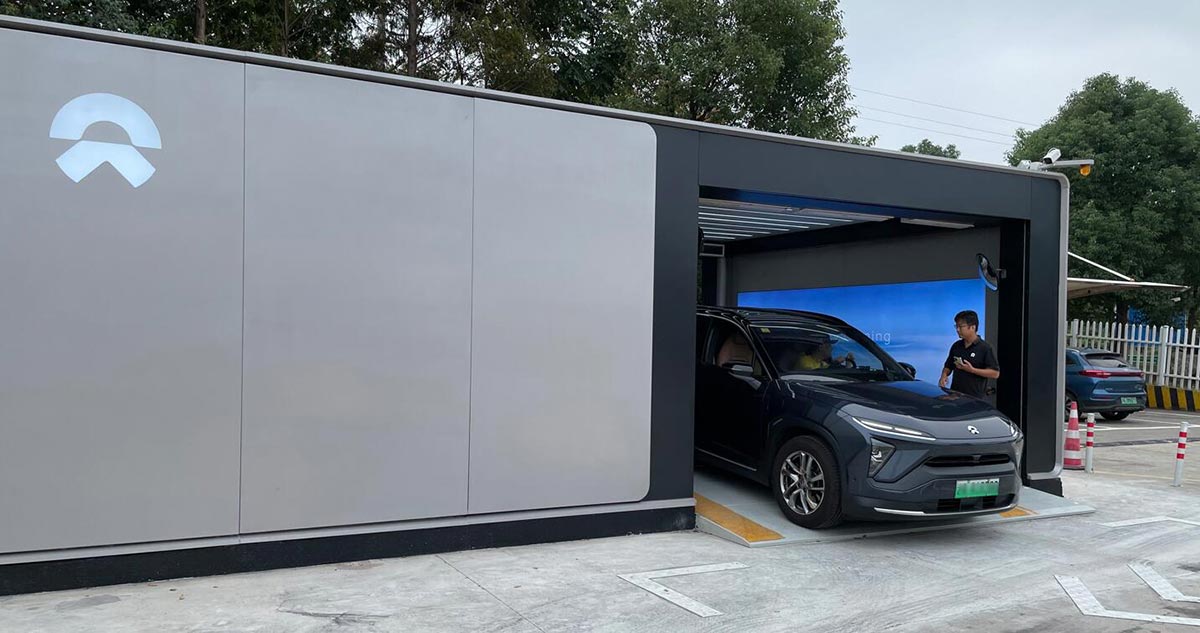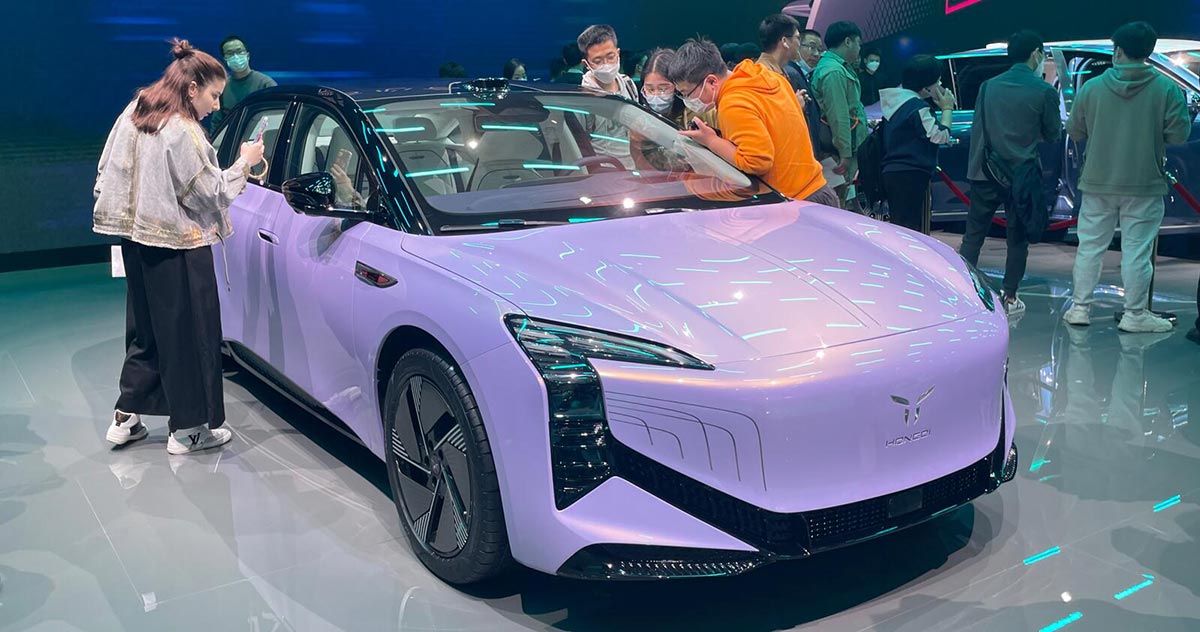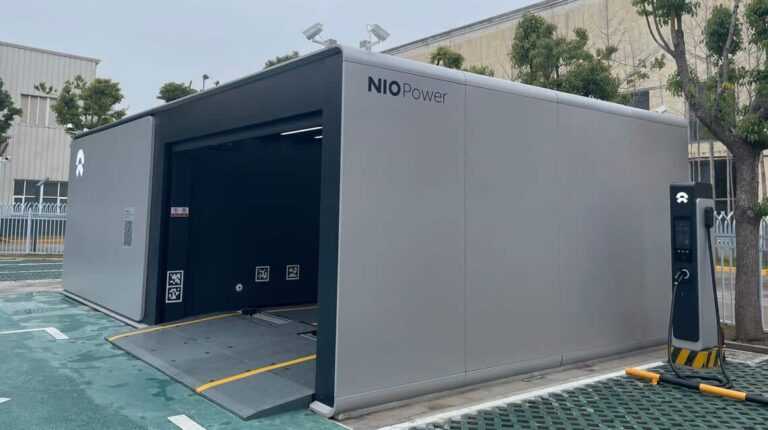The first brand to partner with Nio on battery swap could be China FAW Group's high-end EV brand Hongqi, according to local media.
(Image credit: CnEVPost)
Nio (NYSE: NIO) seems to be about to see the first external partner that will be sharing its iconic battery swap station network.
Nio will announce the first company that will use its battery swap network on November 21, and the electric vehicle (EV) maker is in talks with four to five other companies for similar partnerships, said William Li, Nio's founder, chairman, and CEO, according to multiple local media reports today.
Li today launched an internal speech and Q&A for the company's entire staff, focusing on topics such as recent organizational optimization, sales pressure, and the direction of the next two years, according to the reports.
He was responding to an employee's doubt about the sustainability of the company's battery swap business when he mentioned that the company was about to announce the partnership.
Battery swap is a huge first-mover advantage for Nio and the time has come to open it up to the entire industry, Li said.
The first brand to partner with Nio on battery swap could be China FAW Group's high-end EV brand Hongqi, Wallstreetcn said, citing a source close to Nio. The company didn't comment on this, the report noted.
Hongqi's retail sales in October were 37,200 units, with more than 10,000 retail sales of new energy vehicle (NEV) models, according to figures released by the brand earlier this month.
(A Hongqi model on display at the 2023 Shanghai auto show. Image credit: CnEVPost)
Nio executives have emphasized in the past that the company's battery swap network is open to other companies, but only if they design their chassis to Nio's standards.
Li reiterated that the company's battery swap network is open to the public in a group interview at the China EV 100 Forum on April 1, comparing the service to a cloud service.
Nio's battery swap stations are well adapted and the time has come to provide output to the public, Li said in April.
The company calls its battery swap model battery as a service (BaaS), an innovation that can be understood through the lens of cloud services, he said.
Cloud services around the world, whether they are offered by Microsoft, Google and Amazon in the United States or Alibaba, Tencent and Huawei in China, they all have one thing in common: The companies themselves are the primary users.
"You certainly can't achieve this kind of service if you're not the biggest user yourself," he said in the April interview.
On top of being available for their own use, such systems need to be open, and the hardware interfaces, software interfaces, and operational interfaces all need to be complete, Li said at the time.
As of today, Nio has 2,110 battery swap stations in China, 650 of which are located along highways. The company aims to have 2,300 such facilities in China by the end of the year, with 1,000 of them added this year.
Nio also has 1,957 supercharging stations in China providing 9,191 chargers and 1,450 destination charging stations providing 10,872 chargers.
All of Nio's vehicles support access to fully charged batteries via battery swap stations, which can be done in as little as about 3 minutes and can also be charged like any other EVs.
The support for battery swap makes it possible for Nio owners to upgrade their battery packs whenever they need to. The company currently allows owners the flexibility to upgrade their battery packs on an annual, monthly, and daily basis.
In an interview with local media outlet Xchuxing in November 2021, Li said Nio's sub-brand models will share battery swap stations with the Nio brand, but the company will carefully weigh which facilities will be shared, and which will not.
Nio's battery swap stations are not centralized, so there wouldn't be too much competition for resources when users use them, and there's an averaging advantage here, Li said at the time.
Speaking on an analyst call after Nio announced its second-quarter results on August 29, Li said Alps' model development was going very well, with the first pilot test vehicle already off the line and a second model already in development.
Alps' model development was based on a different philosophy than the Nio brand and will be more focused on the family scenario, Li said at the time, adding that the brand will not have a large number of models and will be more focused on the sales of each vehicle.
On September 14, local media outlet LatePost reported that Alps will be aimed at a market with a price tag in the 200,000 yuan ($27,900) range, and that the first vehicle is scheduled to be mass-produced and begin deliveries in the second half of 2024.
($1 = RMB 7.1707)


